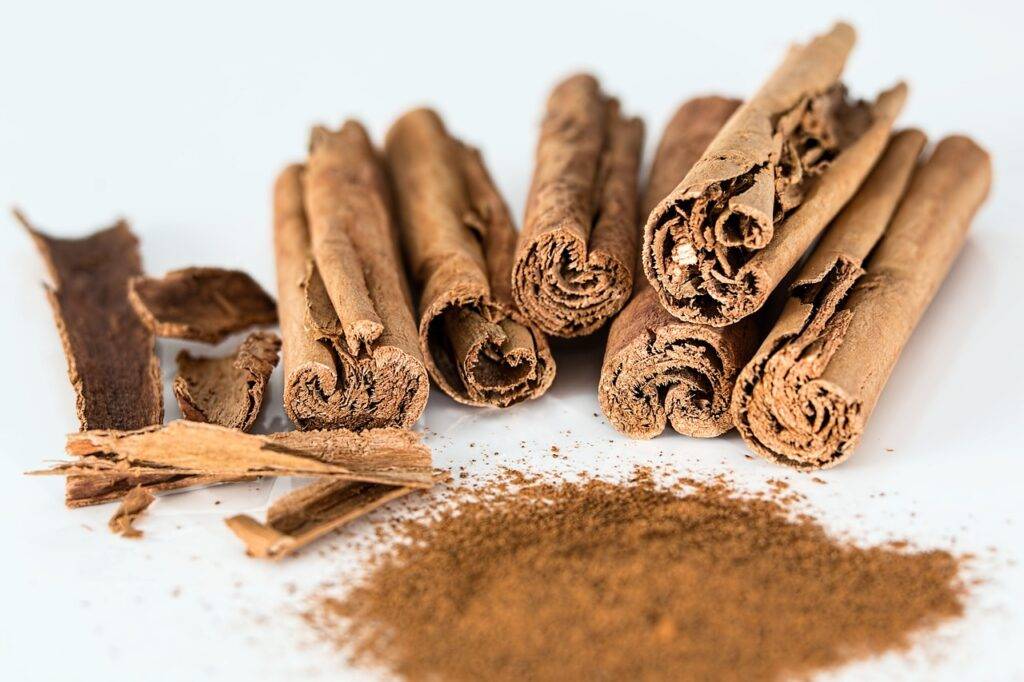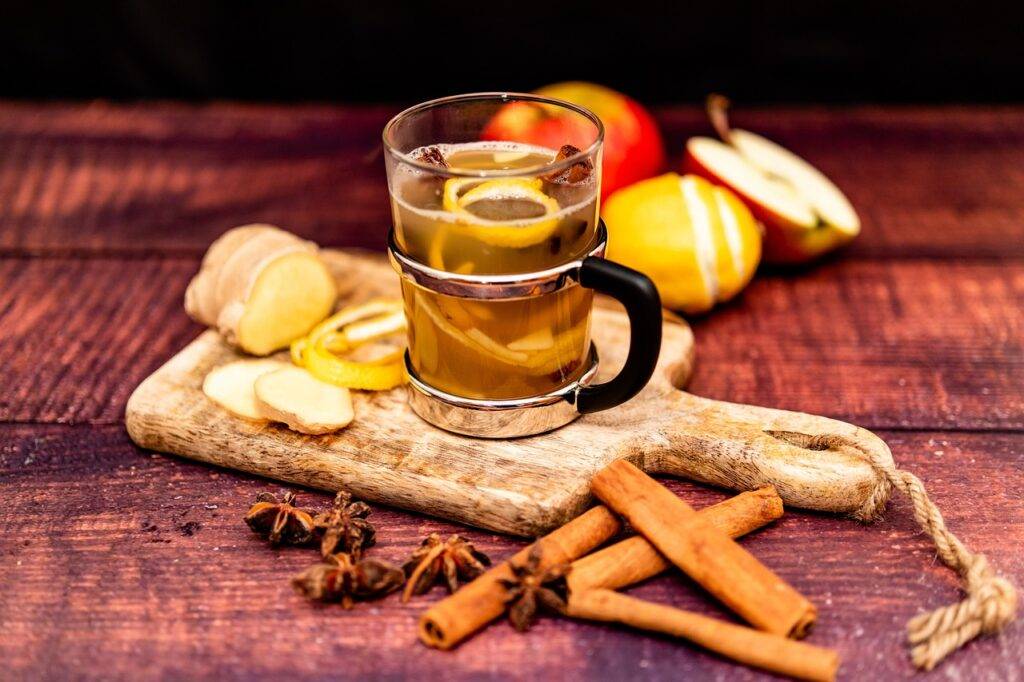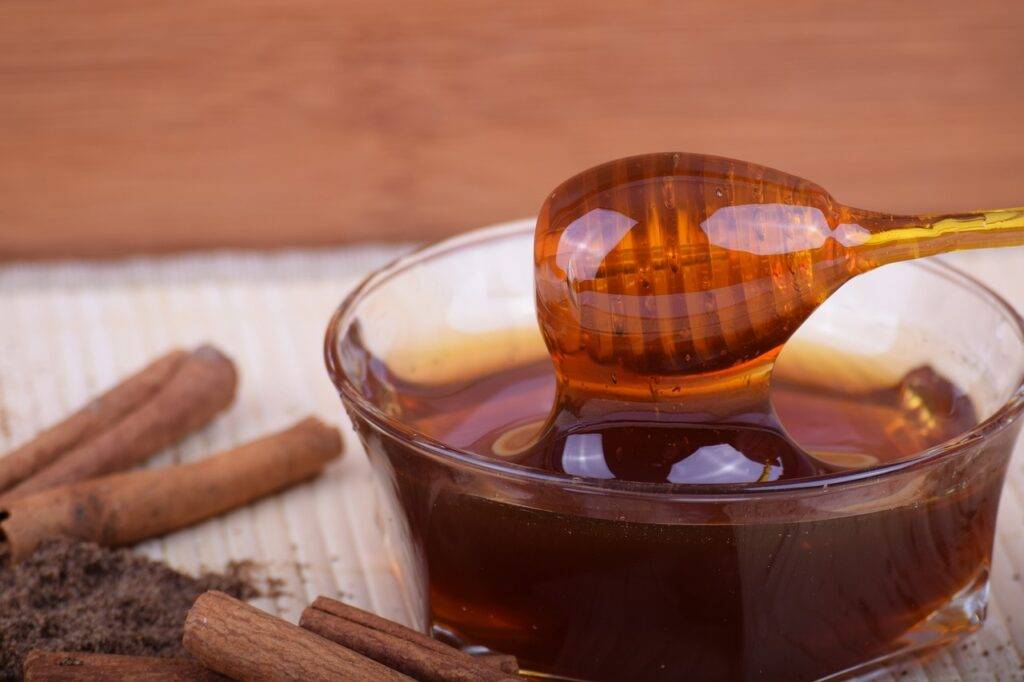Cinnamon Benefits for Skin, Uses, FAQs in (2022)

Have you heard of people using cinnamon to help improve their skin? But what are the true healing properties that cinnamon provides for the skin? Cinnamon has many benefits for your skin.
Cinnamon is a spice with many powerful medicinal properties. It contains flavonoids, phenolic acid, and antioxidants that can reduce inflammation and fight infection. This spice also has antibacterial and antiseptic effects which make it beneficial for use on the skin.
From acne to wrinkles, cinnamon is said to have amazing healing benefits when applied to the skin. Cinnamon can be used in face masks, toners, moisturizers and more. Here’s an overview of how Cinnamon can benefit the skin and all the different ways you can use it.
Does Cinnamon Have Any Benefits For Your Skin?

Cinnamon is a popular spice that has been used for centuries in cooking and medicine. It has many beneficial properties, including antimicrobial, antibacterial, and antifungal properties. These properties make it an ideal ingredient for treating common skin conditions such as Staphylococcus aureus and Candida albicans infections.
Cinnamon contains cinnamaldehyde, an active compound that has been found to inhibit the growth of Pseudomonas aeruginosa strains commonly found in skin wounds and infections. Additionally, studies have shown that cinnamon can promote wound healing by accelerating the healing process. This makes it an excellent choice for those suffering from skin wounds or infections. Furthermore, cinnamon oil can be used topically to help reduce inflammation and irritation associated with certain skin conditions. All these benefits make cinnamon a great natural remedy for treating various skin issues.
Here are 11 great benefits to use cinnamon for better skin:
Cinnamon is a delicious and versatile spice with many benefits for your skin. Here are the top 11 reasons to add cinnamon to your beauty routine:
1. Cinnamon helps to clean the scalp
Cinnamon is a great natural remedy for cleaning the scalp. It has many beneficial properties that can help to nourish and exfoliate the scalp. The grainy texture of cinnamon helps to remove dead skin cells, dirt, and other impurities from the scalp. This helps to keep your scalp healthy and free of any build-up.
You can make a simple paste with cinnamon, olive oil, and honey that can be applied directly onto the scalp. Leave it on for a few minutes before rinsing it off with warm water. This will help to nourish your roots while also providing an exfoliating effect on the scalp. The combination of these ingredients will help to reduce inflammation and promote healthy hair growth. Additionally, it can help to reduce dandruff and other scalp issues as well.
2. Cinnamon helps treat eczema
Eczema is a skin condition that causes inflammation and irritation of the skin. It can be very uncomfortable and cause a lot of distress to those who suffer from it. Fortunately, there are some natural remedies that can help to alleviate the symptoms associated with eczema. One such remedy is the use of cinnamon and honey in the affected areas.
Cinnamon has anti-inflammatory properties which can help reduce swelling and redness in the skin caused by eczema. Honey also has anti-inflammatory properties, as well as antibacterial and antifungal properties which can help to soothe irritated skin. Applying a mixture of cinnamon and honey directly onto the affected area can provide relief from itching, burning, and other discomforts associated with eczema. Additionally, this mixture may also help to treat spot patches that usually form on the skin as a result of eczema. It is important to note that these remedies should not replace any prescribed medications or treatments for eczema, but they may be used in conjunction with them for added relief.
3. Cinnamon helps alleviate acne
Cinnamon has long been used as a natural remedy for acne and other skin conditions. It is believed to have anti-inflammatory, antibacterial, and antifungal properties that can help reduce the appearance of acne. Applying a paste of cinnamon and honey directly to active acne can help dry out the pimples and prevent future breakouts. The paste also helps to exfoliate the skin, removing dead cells and unclogging pores that may be blocked by excess oil.
In addition to its effects on acne, cinnamon has also been found to be beneficial in treating other skin conditions such as eczema, psoriasis, and rosacea. It can help reduce redness and inflammation associated with these conditions while providing antioxidant protection from environmental damage. Cinnamon is also known to improve circulation in the skin which can help promote the healing and regeneration of healthy skin cells. With regular use, it can help alleviate symptoms of these chronic skin conditions while promoting overall healthier-looking skin.
4. Cinnamon is a natural exfoliant
Cinnamon is a great exfoliant that can remove dead skin cells and impurities from the skin. It helps to improve circulation and promote cell renewal, which can leave your skin looking refreshed and radiant.
To use cinnamon as an exfoliant, mix one teaspoon of ground cinnamon with two tablespoons of honey and one tablespoon of olive oil. Apply the mixture to your face in a circular motion and leave it on for 10 minutes before rinsing off with warm water. This natural exfoliant can be used once or twice a week for the best results.
5. Cinnamon is an anti-inflammatory agent
Cinnamon has anti-inflammatory properties that can help to soothe irritated skin and reduce inflammation. This can be beneficial for people with conditions like psoriasis or eczema.
Psoriasis or eczema are both chronic skin conditions that cause redness, itching, and inflammation. Applying a mixture of cinnamon and honey directly to the affected area can help reduce the symptoms associated with these conditions. Additionally, cinnamon has antioxidant properties which can help protect the skin from environmental damage.
6. Cinnamon helps to control blood sugar levels

Cinnamon has been shown to help control blood sugar levels, which is beneficial for people with diabetes or prediabetes. It can also help to improve skin conditions that are related to high blood sugar levels, such as acne and eczema.
Blood sugar levels can be controlled by consuming cinnamon in the form of a tea or supplement.
7. Cinnamon is a natural antioxidant
Cinnamon is rich in antioxidants, which can help to protect the skin from free radical damage. This can help to keep your skin looking youthful and healthy.
Free radicals are unstable molecules that can damage the skin and cause premature aging. Antioxidants help to neutralize these free radicals and protect the skin from their damaging effects. Consuming cinnamon in the form of a tea or supplement can help to boost your antioxidant levels and keep your skin looking healthy.
8. Cinnamon helps regulate oil production
Cinnamon can help regulate oil production, which can be beneficial for people with oily skin. It can help to reduce the appearance of acne and other blemishes.
People who suffer from oily skin often have an overproduction of sebum, which can lead to clogged pores and breakouts. Cinnamon can help to regulate oil production and reduce the appearance of acne. It can also help to reduce inflammation associated with acne.
9. Cinnamon has antimicrobial properties
Cinnamon has anti-microbial properties that can help to kill bacteria and fungus on the skin. This can be helpful for people who are prone to infections or outbreaks.
Bacterial infections can cause redness, itching, and inflammation on the skin. Applying a mixture of cinnamon and honey directly to the affected area can help to reduce these symptoms. Additionally, cinnamon has anti-fungal properties which can help to prevent fungal infections like athlete’s foot.
10. Cinnamon is a natural skin toner
Cinnamon is a natural astringent that can help tighten and tone the skin. This can help reduce the appearance of wrinkles and other signs of aging.
Wrinkles and aging are common as we get older. Applying a mixture of cinnamon and honey directly to the skin can help to reduce the appearance of wrinkles and other signs of aging. Additionally, cinnamon can help to reduce inflammation and redness associated with aging skin.
11. Cinnamon is a great moisturizer
Cinnamon is a great moisturizing agent that can help keep the skin hydrated and healthy. It can be especially beneficial for people with dry skin.
Skin hydration can be improved by applying a mixture of cinnamon and honey directly to the skin. This can help to reduce dryness and flakiness, as well as improve the overall texture of the skin.
Cinnamon is affordable and easy to find

Cinnamon is a cheap and readily available spice that can be used in many different ways to benefit your skin.
There are several types of cinnamon that can be used for skin care, including Ceylon cinnamon and cassia cinnamon. Both of these types of cinnamon are affordable and easy to find in most grocery stores. Additionally, they can be used in a variety of ways to benefit your skin.
Different types of Cinnamon and benefits
Cassia Cinnamon
Cassia cinnamon, also known as Chinese cinnamon, Cinnamomum cassia, or Cinnamomum aromaticum is a type of cinnamon that is widely available in grocery stores. It is grown in large quantities in China, making it cheaper than Ceylon cinnamon. This makes it the most common type of cinnamon used for products such as powder. Cassia has a strong flavour with less sweetness than Ceylon cinnamon and has a darker reddish-brown hue.
Korintje cinnamon
Korintje cinnamon, also known as Indonesian cinnamon, Padang cassia, Batavia cassia, or Cinnamomum burmannii is a type of Cassia cinnamon native to Southeast Asia. It is the most common variety of cinnamon found in the United States due to its low cost compared to other varieties. This type of cinnamon has a strong and sweet flavour that makes it popular for baking and cooking.
However, Korintje cinnamon has one major disadvantage: it contains the highest amount of coumarin among all types of cinnamon. Coumarin is a potentially harmful compound that can cause liver damage if consumed in large amounts over time. Therefore, those who are sensitive to coumarin should be careful when using this type of cinnamon and should consult their doctor before consuming it regularly.
Saigon cinnamon
Saigon cinnamon, also known as Vietnamese cinnamon or Cinnamomum loureiroi, is a member of the Cassia family. It is far more expensive and harder to come by than regular Cassia cinnamon due to its full, complex flavour with even less sweetness. This makes it a sought-after spice for many culinary dishes. Unlike other cinnamon varieties, you are unlikely to find Saigon cinnamon in the spice section of your local grocery store.
The flavour of Saigon cinnamon is unique and intense compared to other types of cinnamon. It has a strong aroma that can make it ideal for use in aromatherapy and perfumes. Saigon cinnamon is truly a versatile spice that can be used in many different ways!
Ceylon Cinnamon
Ceylon cinnamon, also known as “true cinnamon”, is extracted from the crumbly inner bark of the Ceylon cinnamon tree. It has a light brown colour and its flavour is sweet and delicate. Unfortunately, it is more expensive to purchase and produce than Cassia cinnamon. Although both varieties share a sweet and spicy flavour spectrum, their health benefits differ significantly.
The two main benefits of Ceylon cinnamon are its ability to regulate blood sugar levels and its use as an effective mosquito repellent (Khan et al. 20033; Chang et al. 20064). Additionally, studies have shown that Ceylon cinnamon can help reduce inflammation in the body, improve digestion, and even boost cognitive function. It is also rich in antioxidants which can help protect against cell damage caused by free radicals. All these benefits make Ceylon cinnamon a great addition to any diet or lifestyle routine.
Uses of Cinnamon to glow and benefit your skin
There are several ways that you can use cinnamon to improve your skin complexion.
Here are some ways to use cinnamon for skin care:
- Add one teaspoon of ground cinnamon to your morning oatmeal or smoothie.
- Mix one teaspoon of cinnamon with two tablespoons of honey and apply it to your face. Let the mixture sit on your skin for 15 minutes, then rinse it off with warm water.
- Add a teaspoon of cinnamon to a cup of hot water and drink it as tea.
- Add a teaspoon of cinnamon to a quart of warm water and use it as a skin toner.
How to make a simple cinnamon face mask:

Ingredients:
- – One tablespoon of honey
- – One teaspoon of cinnamon
Instructions:
- – Mix the honey and cinnamon together until a paste forms.
- – Apply the mask to your face, avoiding the eye area.
- – Leave the mask on for 15-20 minutes.
- – Rinse the mask off with warm water and pat your face dry.
If you want to get glowing, radiant skin with cinnamon, then start using this simple cinnamon face mask recipe today!
FAQ: Cinnamon benefits for the skin
What are the benefits of cinnamon for the skin?
Cinnamon is known to have many benefits for the skin. It can help improve complexion, fight acne, and reduce the appearance of wrinkles and age spots. Cinnamon is also a natural antiseptic, making it great for treating minor skin infections.
How do I use cinnamon to improve my skin?
There are a few ways to use cinnamon to improve your skin. One way is to make a cinnamon and honey face mask. Combine one tablespoon of cinnamon with two tablespoons of honey, and apply the mixture to your face. Leave it on for fifteen minutes, then rinse it off with warm water. Another way to use cinnamon is to add it to your skincare products. You can add a teaspoon of cinnamon powder to your body wash, face wash, or moisturizer.
Will cinnamon benefit all skin types?
No, cinnamon is not good for all skin types. It may be too harsh for people with sensitive skin. If you have never used cinnamon on your skin before, it is best to test it out in a small area first to ensure that you don’t experience any adverse reactions.
Can I use cinnamon benefits for skin every day?
It would help if you did not use cinnamon every day. It is a strong spice, and if used too often, it can irritate your skin. Cinnamon is best used a few times a week or as directed by your skin care specialist.
Is cinnamon safe to use during pregnancy?
Cinnamon is not safe to use during pregnancy. It may cause adverse reactions in the baby, so it is best to avoid using cinnamon if you are pregnant.
Can cinnamon be used on children?
Cinnamon can be used on children, but it should be used with caution. It is a strong spice, and if used too often, it can irritate the skin. Cinnamon is best used a few times a week or as directed by your child’s paediatrician.
Can cinnamon be used to treat skin conditions?
Cinnamon can treat some skin conditions, such as acne and psoriasis. It is a natural antiseptic with antibacterial properties, so it can help fight bacteria that may cause these conditions. However, cinnamon should not be used to treat more serious skin conditions without first consulting with a doctor.
Can cinnamon and honey face masks help to improve complexion?
Cinnamon and honey face masks can help to improve complexion. Honey is a natural humectant, which means it helps retain moisture in the skin. Cinnamon is also a natural antiseptic, so it can help fight bacteria that may cause acne or other skin conditions.
Can cinnamon and honey face masks help to reduce wrinkles?
Cinnamon and honey face masks may help to reduce the appearance of wrinkles. Honey is a natural humectant, which means it helps retain moisture in the skin. Cinnamon is also a natural antiseptic, so it can help fight bacteria that may cause acne or other skin conditions. Additionally, cinnamon is a natural antioxidant, which can help fight the effects of free radicals that may cause wrinkles.
References: Cinnamon benefits for the skin
Cinnamon is rich in plant compounds known as polyphenols, such as cinnamic acid, cinnamaldehyde, and various flavonoids. These boast anti-inflammatory and antioxidant properties that help fight cell-damaging free radicals
External Link: https://www.ncbi.nlm.nih.gov/pmc/articles/PMC4003790/
Interestingly enough, researchers have found that the spice ranks No. 1 out of 26 of the most popular herbs and spices in the world in terms of its protective antioxidant levels. It also boasts a wide range of other health benefits, including antibacterial, antifungal and anti-diabetic properties.
External Link: https://pubmed.ncbi.nlm.nih.gov/16190627/
Cinnamaldehyde is a tyrosinase inhibitor (reduces melanin production) and can be used as a skin-whitening agent in cosmetics ( Brightens The Skin: ). Cinnamon also contains p-coumaric acid, a compound used as a skin-lightening ingredient in cosmetics ( 9 ). Both the agents may help reduce hyperpigmentation. 10
External Link: https://as-botanicalstudies.springeropen.com/articles/10.1186/1999-3110-54-10
More great articles that may be of interest to you 🙂
